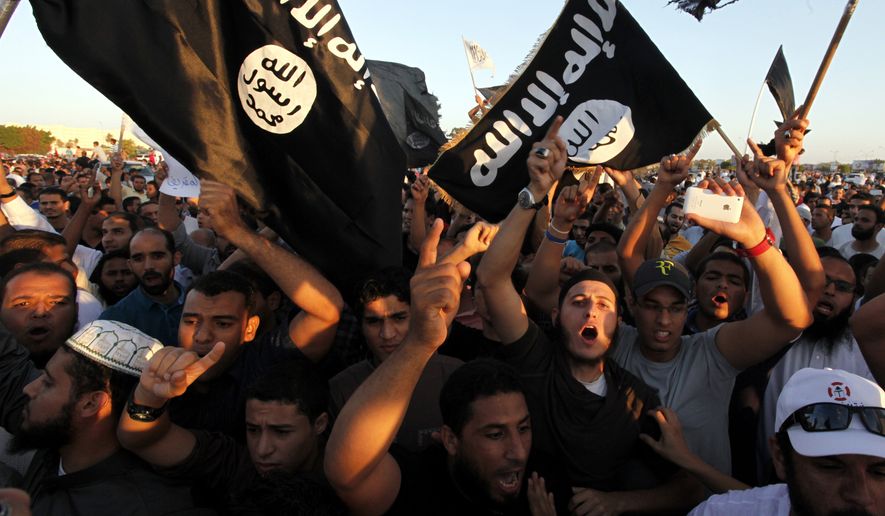The Embassy of Libya chargé d’affaires is calling for a global task force to produce an international charter that establishes laws for how nations can react to the whims of radical religious groups that commit acts of terrorism.
Libyan diplomat Wafa Bughaighis said Monday the charter should provide guidance for how the international community can combat Islamic extremists who have been preying on the instability of fragile countries such as Libya, which have “minimal support and resources to fight back the new evil.”
Ms. Bughaighis made the emotional request during a panel discussion on international cooperation in combating terrorism at the National Press Club in D.C. Libya is one of several countries in the greater Middle East that has seen Islamic State supporters gain a foothold among people who harbor extremist views.
“Young men are being recruited into joining extremist groups and shipped across borders to come and create havoc in my country,” she said.
The global task force should include in its charter laws that “control the spillage of weapons and funds into the hands of terrorists,” Ms. Bughaighis said.
“Nations have to stop the support rogue groups with fundamental thinking,” she said.
Ms. Bughaighis told The Washington Times after the panel discussion that she remains hopeful that Libya will be able to form a national unity government in the near future. Ongoing United Nations-led peace talks in Morocco between rival Libyan factions may yield a collaborative political and security plan that would enable the country to battle the extremist groups operating within its borders, Ms. Bughaighis said.
“We have to see complete plans,” she told The Times. “If that works, then we will be able to join united efforts internally to fight terrorism. International collaboration will be more in terms of, like, a force a maritime force supporting us with equipment, training, providing our military with the necessary arms and equipment to fight terrorism.”
The Islamic State presence in Libya attracted national attention in early February, after the group made public shocking photos that showed its militants beheading 21 Egyptian Coptic Christian migrant workers. Militants also gloated about the murders in a five-minute video, evoking the ire of the Egyptian military, which retaliated against the Islamic State by conducting airstrikes on its training sites and weapons stockpiles in Libya.
• Maggie Ybarra can be reached at mybarra@washingtontimes.com.




Please read our comment policy before commenting.